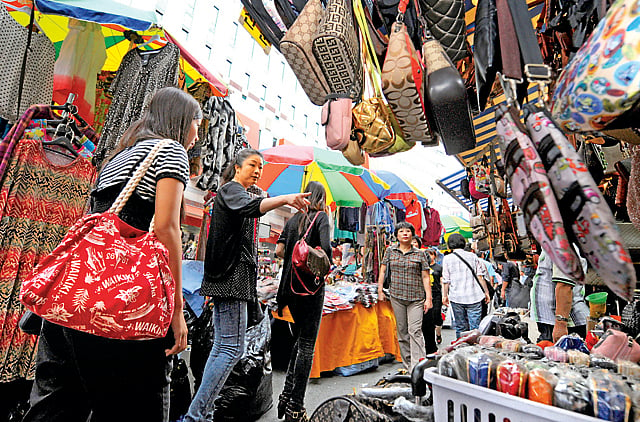The tourist magnet
South Korea wants tourist receipts to exceed $10 billion in 2011

South Korea is a fascinating anomaly. While its roots are firmly grounded in ancient Confucianism, the country itself is a technologically advanced Asian giant that is constantly aiming for the stars, and constantly searching for ways to become bigger and better at everything it does — be it manufacturing or medical tourism.
The Pacific Rim country is finally cashing in on its history and heritage, developing its infrastructure into tourism and services and diversifying its economy from export and manufacturing. "For the past three years tourism receipts from South Korea have been around $9.7 billion (about Dh34 billion) per annum," Seunghyun Hwang, Regional Director Middle East (Dubai office), tells GN Focus. This year the country is determined to exceed $10 billion for the first time and the government has aggressively stepped up its marketing efforts — not an easy goal in the wake of the catastrophe that hit Japan this March.
Medical tourism
Considering South Korea's strengthening economy and the stabilised exchange rate of the Korean won, the country is not only seeing an increase in outbound tourism but is channelling all its efforts to bring in as many visitors as possible. Towards this aim the Korean Tourism Organisation (KTO) launched the 2010-2012 Visit Korea Year campaign in 2009.
Even before that, however, the country was a magnet for medical tourism. In 2009 alone, for example, Korea welcomed approximately 60,000 medical tourists, who spent $54 million during their visit — about $900 per patient. This is an area Korea continues to focus on, its latest marketing coup being the launch of MediApp Korea, which was unveiled by KTO this January. MediApp Korea is a medical travel application that provides international visitors and foreign residents access to Korea's medical tourism information and services. It provides detailed information on medical travel in Korea, including where cutting-edge medicine is widely available.
Apart from medical tourism, South Korea has other aces up its sleeve, including the hosting of international events. Among the most recent was last year's G20 summit, exactly the sort of platform that serves to promote South Korea as a tourism brand and provide a great pay-off to the efforts of the government and KTO in endeavouring to make South Korea a competitive MICE (meetings, incentives, conferences and exhibitions) destination. "In 2010, according to the Union of International Associations' statistics, Korea ranked eighth in the world and second in Asia in number of international conferences hosted," says Hwang.
At the beginning of this year, Seoul, which has hosted the Asiad and the Olympics, became the first Asian city to host the GCC Days 2011 seminars, until now only held in European cities such as Paris, Brussels, Berlin and London. At the seminar one of the focus areas was ways in which cultural understanding and exchange could be promoted between Korea and the GCC.
"Korea had 8,471 GCC tourists in 2010, which is 58 per cent more compared with previous years," says Hwang. "From the UAE 2,433 travellers visited South Korea last year, which is a 2.7 times increase when compared with 2009 that had only 887 travellers. We attribute this increase to strengthened economic ties between the two countries, raised awareness of Korea as a tourist destination and global spread of K-pop culture (Korean Stream, Hallyu), which includes popular Korean songs, movies and TV dramas."
That's just the GCC; in terms of international tourism arrivals the country has seen a 7 per cent increase in 2010, says Hwang, with the top tourism-generating markets for South Korea being Asian countries such as Indonesia, China, Japan and of course the GCC.
Foreign investment
With the numbers looking increasingly promising the Korean government is inviting foreign investment in three major areas: tourism resort development, theme park development and tourist hotels. In return the Korean government, with an annual budget of approximately $1 billion, is investing tourism funds in infrastructure development, marketing and industry upgrade, according to Hwang.
South Korea is doing all it can to lay out the red carpet for visitors as the world wakes up to the touristpotential of the country and indulges in its rich cultural tapestry.
Sign up for the Daily Briefing
Get the latest news and updates straight to your inbox
Network Links
GN StoreDownload our app
© Al Nisr Publishing LLC 2026. All rights reserved.